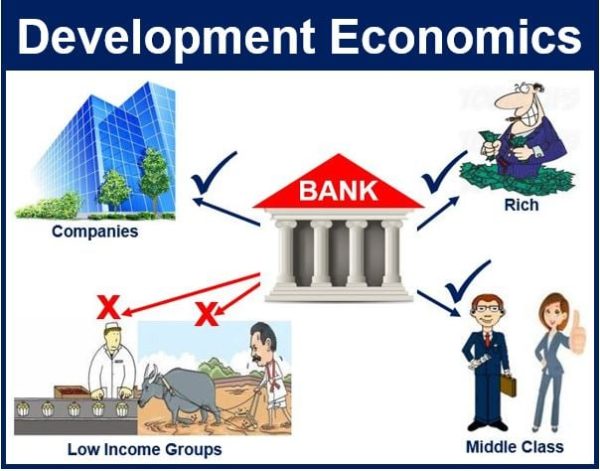
ECO 361 ONLINE QUIZ/ASSIGNMENT 1(VITAL QUESTIONS ON DEVELOPMENT ECONOMICS)–20/2/2025
1.Traditional neoclassical economics deals with advanced capitalist world of perfect markets; consumer sovereignty; automatic price adjustments; decisions made on the basis of marginal, private-profit, and utility calculations; and equilibrium outcomes in all product and resource markets. It assumes economic “rationality” and a purely materialistic, individualistic, self-interested orientation toward economic decision making. Clearly discuss this as the Special Adviser to Mr President on Development Economics.
2. Political economy goes beyond traditional economics to study, among other things, the social and institutional processes through which certain groups of economic and political elites influence the allocation of scarce productive resources now and in the future, either for their own benefit exclusively or for that of the larger population as well. Political economy is therefore concerned with the relationship between politics and economics, with a special emphasis on the role of power in economic decision making. Discuss
3. Development economics has an even greater scope. In addition to being concerned with the efficient allocation of existing scarce (or idle) productive resources and with their sustained growth over time, it must also deal with the economic, social, political, and institutional mechanisms, both public and private, necessary to bring about rapid (at least by historical standards) and large-scale improvements in levels of living for the peoples of Africa, Asia, Latin America, and the formerly socialist transition economies. Discuss
4. What does development truly entail?
5. What insights can we gain from the historical patterns of economic advancement in currently developed nations? How do the initial circumstances of today’s developing countries compare to those encountered by developed nations at the beginning of their industrialization?
6.What are economic institutions, and in what ways do they influence issues related to underdevelopment and the potential for successful development?
7. What factors contribute to the significant disparities between the wealthy and the impoverished?How can the extremes between rich and poor be so very great?
- What are the sources of economic growth at both national and international levels? Who stands to gain from this growth and what are the reasons behind it? Why do some nations achieve rapid development while others continue to struggle with poverty?
- What are the key theories of development, and are they mutually compatible? Is the phenomenon of underdevelopment primarily driven by internal (domestic) factors or external (international) influences?
- What factors primarily hinder accelerated growth, taking into account specific local conditions?
- In what ways can enhancing the role and status of women significantly improve development outcomes?
- What factors contribute to extreme poverty, and which policies have proven most effective in improving the circumstances of the poorest individuals?
- Is rapid population growth a threat to the economic advancement of developing countries? Do large families provide any economic advantages in an environment characterized by widespread poverty and financial instability?
- Why is there a high level of unemployment and underemployment in developing countries, particularly in urban areas, and what motivates people to migrate to cities even when their chances of securing a conventional job are very low?
- Wealthier societies tend to be healthier due to their greater resources for nutrition and healthcare. However, does improved health also contribute to successful development?





